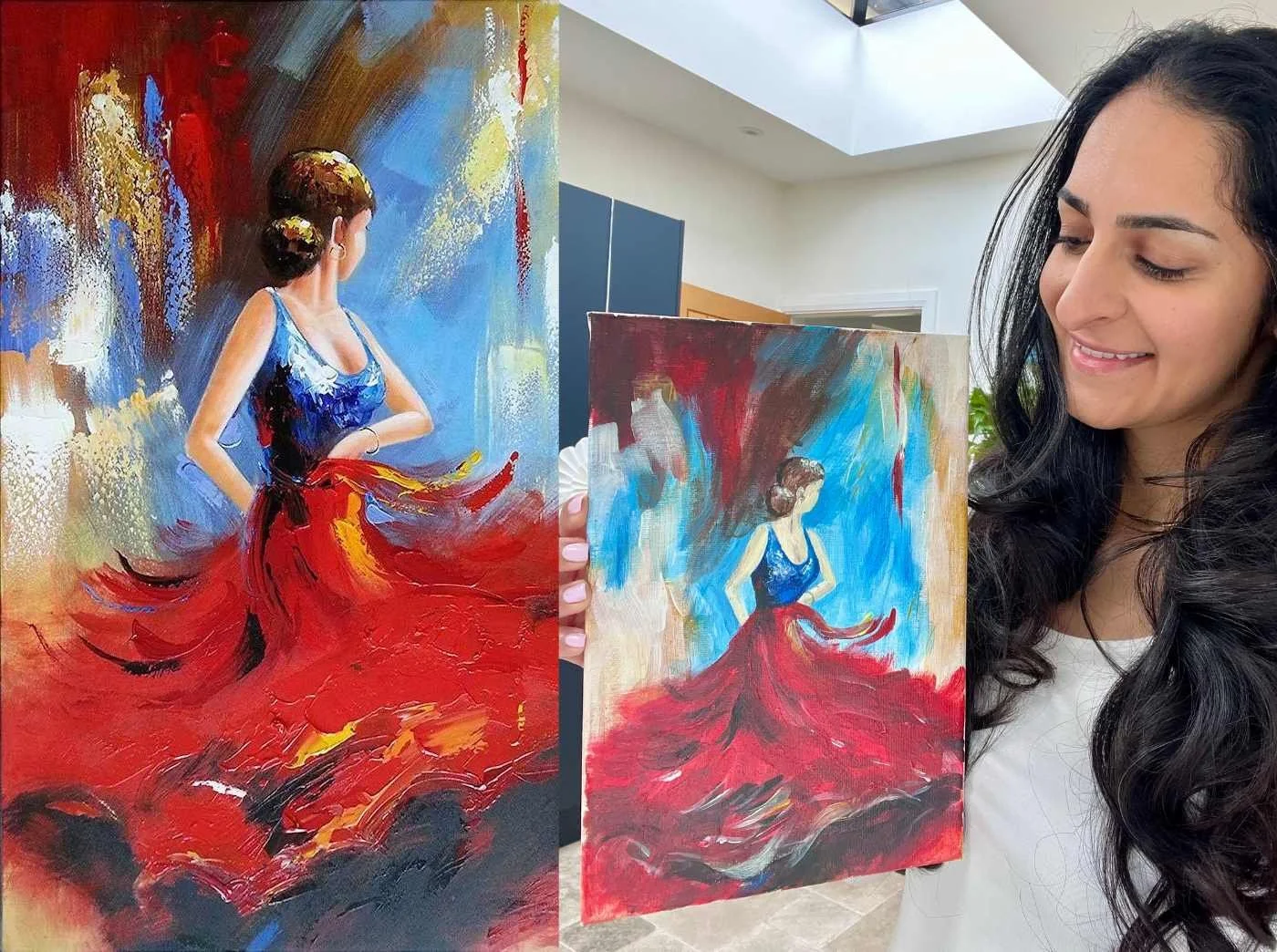For years, I told myself: “I’m not creative”
Challenging my "I'm not creative" story
The Stories We Tell Ourselves. For years, I told myself, “I’m not creative.”
I wasn’t encouraged to explore the arts in school, and the few times I did try to draw? I wasn’t very good. So I figured, that’s that, I just don’t have a creative bone in my body.
I never actually tested this belief. I just assumed it was true.
Then, a couple of years ago, I signed up for a retreat in Tuscany. I thought it would be yoga, self-care, and maybe a little painting for fun. Turns out, it was way more than that, it was art as a therapeutic medium. A whole week of painting, not to create something “pretty” but as a way to express what was inside.
I had no idea what I was doing. It was a mess 😂
Slowly, with some encouragement, I let go of the idea that I needed to be good at it. And I discovered that creativity isn’t about talent—it’s about expression ✨
When I got home, I found the paints I had bought during the pandemic (and never touched). One quiet afternoon, I picked up a small canvas, found a picture of a beautiful dancer, and thought: “Why not?!”
And to my absolute shock, it actually turned out pretty well. More importantly, I loved doing it. It felt… relaxing. Fun. Freeing!
Since then, I’ve let go of the idea that I’m not creative. We are all creative. Humans are literally mark makers! Yet so many of us carry “art scars” - maybe from a teacher’s critique or from comparison. We internalised that as truth, never realising we could rewrite the story.
How We Internalise Limiting Beliefs
We all have stories we tell ourselves—about our creativity, our abilities, what we’re capable of. Many of these stories take root in childhood or our early adult experiences.
Maybe someone told you you weren’t athletic, so you never tried sports again. Maybe you struggled with math in school, so you decided, I’m just not a numbers person. Or maybe you, like me, believed you weren’t creative because you never had the opportunity to explore it in a supportive environment.
These beliefs become part of our identity, often without us realising it. And they shape the choices we make for years, sometimes for a lifetime.
But here’s the truth: these stories aren’t always facts. They’re just beliefs we’ve carried for so long that they feel like facts. And when we challenge them, we often find they were never really true in the first place.
Challenging the Stories We Tell Ourselves
One of the biggest mindset shifts I’ve made is recognising that imposter syndrome is just perfectionism in disguise. It’s the belief that if we’re not naturally good at something, we shouldn’t do it. That if we’re not excellent from the start, we’re not enough.
But what if we let go of that? What if we gave ourselves permission to be beginners? To explore, to play, to create, without pressure or expectation?
How to Rewrite Your Story
Once you realise a limiting belief isn’t true, here’s what you can do:
Catch Yourself in the Act – When an old belief creeps in (“I’m not creative” / “I’m bad at this”), pause and ask: Is this actually true, or just something I’ve repeated for years?
Gather New Evidence – Start looking for proof that the belief isn’t real. Have you ever surprised yourself? Have others seen something in you that you haven’t?
Rewrite the Narrative – Replace the old belief with something more open-ended: “I’m discovering new ways to express myself creatively.”
Take Small Action – Do the thing you thought you couldn’t do. Just for fun. Without pressure to be good at it.
Be Kind to Yourself – Changing a belief takes time. You don’t have to get it perfect. You just have to start.
And the most powerful realisation? The stories we tell ourselves can change.
What Stories Are You Holding Onto?
We all have them. I’m not creative. I’m not athletic. I’m not good at public speaking. I’m not the kind of person who takes big risks.
But what if you’re wrong? What if that belief is just an old story that no longer serves you?
What’s one belief you’ve been carrying that might not actually be true?
And what’s one small step you could take to challenge it?

